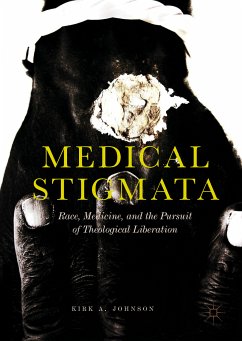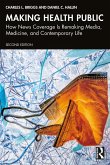This book observes the idea of race as a false representation for the cause of disease. Race-based medicine, an emerging field in pharmacology, aims to create a specialty market based on racial groups. Within this market, the drug BiDil set a precedent in this area of medicine targeting African Americans as its first racial group. Consequently, selecting African Americans as a "starter group" led to ethical questions regarding the motive behind race-based medicine within the context of the larger treatment of blacks in American medical history. This book therefore links medicine and American eugenics, examines race-based medicine's influence on the perception of the black body, traces the influence of BiDil's approval on the resurgence of race-based medicine, and assesses the black church's response to race-based medicine using black liberation theology as a means to social justice.
Dieser Download kann aus rechtlichen Gründen nur mit Rechnungsadresse in A, B, BG, CY, CZ, D, DK, EW, E, FIN, F, GR, HR, H, IRL, I, LT, L, LR, M, NL, PL, P, R, S, SLO, SK ausgeliefert werden.









